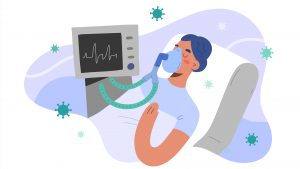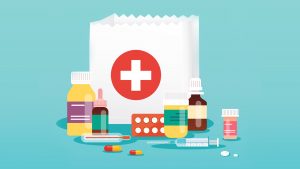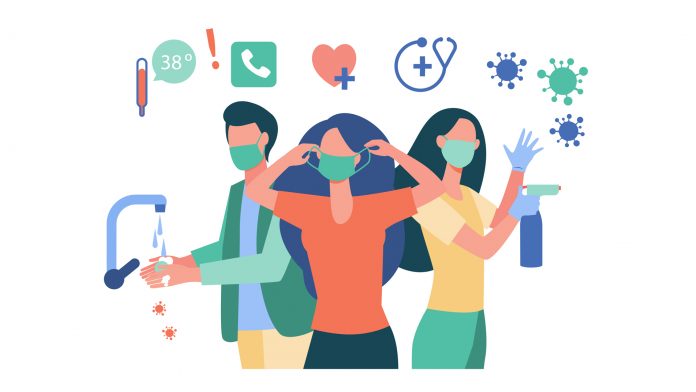Scientists have developed a multitude of new innovative COVID-19 technologies – but which can successfully aid the global recovery from the recent pandemic?
Since the European Union announced their €314m pandemic relief budget, many innovators have been striving to develop new COVID-19 technologies. Due to testing requirements, numerous medical-based innovations, such as drugs and vaccines, will see a delay in production. These delays have been somewhat reduced due to the urgency of the situation; however, many projects have opted to develop non-medical-based technologies.
Innovation News Network explores the latest COVID-19 technologies and how they can combat the recent pandemic.
Digital COVID-19 technologies
Various funding opportunities have been made available to those looking to develop digital-based solutions to the COVID-19 pandemic, for example, the Welsh Government has announced a £150,000 fund for healthcare firms to create new ways to use digital technology in the fight against COVID-19.
“What becomes clear is that we need coordinated action between the policy shapers at European and national levels and the makers from business and industry to create a sovereign European digital reality. Key are policies that enhance innovation and respect European values and rights while creating equal economic opportunity for all actors,” says EIT Digital CEO Willem Jonker.

Will there be successful contact tracing apps on the market?
On 12 April, NHSX announced that they are planning to develop a new contact tracing app that could slow the spread of COVID-19. NHSX suggested that the app would use Bluetooth to keep a record of people who came into close contact, however, this is greatly dependant on these individuals all having the app. If someone using the app tested positive for COVID-19, alerts will be sent instructing individuals to go into quarantine.
On 5 May, the UK Government trailed the app in the Isle of Wight, where 60,000 people downloaded and used it. According to the BBC, this app failed to detect 96% of contacts with Apple iPhones. The UK Government allegedly did not inform Apple that they were developing this ‘hybrid’ app.
The British Government have yet to announce the launch date of their revised app, however, due to cybersecurity concerns, many nations have struggled to develop an app that can successfully trace the spread of COVID-19.

Can supercomputers identify COVID-19 drugs?
MOGON II, one of the most powerful supercomputers in the world, has identified multiple drugs that have the potential to treat COVID-19, four of which is approved for treating hepatitis C. With a computational performance of two petaflops (2,000,000,000,000,000 arithmetic operations per second) MOGON II has ranked number 65 on a list of the 500 fastest computers.
The research team made more than 30 billion single calculations within two months and found that compounds from the four hepatitis C drugs simeprevir, paritaprevir, grazoprevir, and velpatasvir have a high affinity to bind SARS-CoV-2 very strongly.
“This computer simulation method is known as molecular docking and it has been recognised and used for years. It is much faster and less expensive than lab experiments. As far as we know, we were the first to have used molecular docking with SARS-CoV-2. And it is fantastic news that we have found a number of approved hepatitis C drugs as promising candidates for treatment,” said Professor Thomas Efferth of the Johannes Gutenberg University Mainz Institute of Pharmacy and Biomedical Sciences, lead author of the study.
Medical COVID-19 technologies
The desired to develop a quick fix for the pandemic, has led to misinformation and overlooked statistics. After being endorsed by US President, Donald Trump, the Federal Drug Administration (FDA) invoked emergency authorisation of the drug hydroxychloroquine, which has since been proven to not work as a cure for COVID-19 and cause severe side effects.
The case of hydrocychloraquine has indicated that there will not be a quick fix drug for this pandemic. Despite this, medical researchers have developed a plethora of medical technologies that have successfully treated the symptoms of COVID-19.

How have innovators reduced ventilator shortages?
NASA scientists have developed a new COVID-19 ventilator tailored to reduce the strain on supply chains. The FDA has recently approved this ventilator under their Emergency Use Authorization (EUA), a fast-track approval process that takes days rather than years.
When speaking to Innovation News Network, Leon Alkalai, a member of NASA’s VITAL leadership team, attributed the success of the device to “very talented engineering staff focused on solving a problem.”
VITAL requires patients to be sedated and intubated in order to bypass their natural breathing function. This new device is not designed to replace current hospital ventilators as it is specifically tailored for COVID-19 patients, lasting three to four months.
The newly developed, Mechanical Ventilator Milano (MVM), is a reliable and easy to operate ventilator for COVID-19 patients. The ventilator is designed to work in a pressure-controlled mode making it safe to use for COVID-19 patients, for whom high pressure may cause further damage to the lungs.
In a new paper published in arXiv, researchers highlight: ‘In the pressure-controlled ventilation (PCV) configuration, the unit will operate the valves in regular cycles. The operator defines the cycle by setting the inspiratory time, PEEP, and respiratory rate. The operator is also required to set the target inspiratory pressure.’

Are there drugs available to treat COVID-19?
On 16 June, Dexamethasone, an anti-inflammatory drug, was immediately approved to treat all UK hospitalised COVID-19 patients requiring oxygen, including those on ventilators. The drug has been proven to reduce the risk of death significantly in COVID-19 patients on ventilation by as much as 35% and patients on oxygen by 20%, reducing the total 28-day mortality rate by 17%.
Funded by the UK government, via the National Institute for Health Research (NIHR) and UK Research and Innovation (UKRI), the Oxford University UK trial is the first clinical trial anywhere in the world to show a treatment provides significant impact in reducing patient mortality.
Health Secretary Matt Hancock said: “I’m absolutely delighted that today we can announce the world’s first successful clinical trial for a treatment for COVID-19. This astounding breakthrough is testament to the incredible work being done by our scientists behind the scenes.
“From today the standard treatment for COVID-19 will include dexamethasone, helping save thousands of lives while we deal with this terrible virus. Guided by the science, the UK is leading the way in the global fight against coronavirus – with the best clinical trials, the best vaccine development and the best immunology research in the world.”









